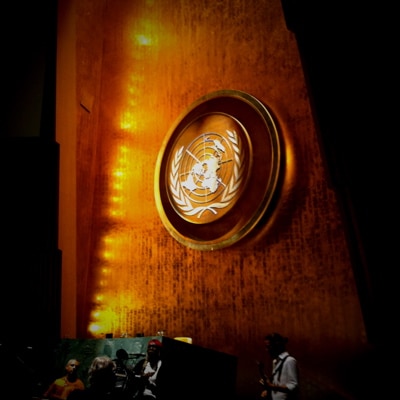As the wounded youngsters debate amongst themselves whether their captors can be forgiven for their actions as they, the children, are being assured they have indeed been forgiven (by the Center’s staff, the international awareness and presumably their families, but what will await them as they revisit the landscapes and communities they have contributed to destroy?); as they face their vocal yet rather moderately repenting ex-Commander Abongo Papa that has been granted governmental amnesty; as his former 11-year-old “wife” weeps in the lap of her counselor, the crucial universality of this question strikes us with unrelenting force.
As insurmountable as forgiveness may seem in such extreme situations, is there any hope of ever breaking the vicious circle of violence without eradicating the concept of revenge? Isn’t the spirit of revenge almost single-handedly at play in the endless cycle of victims-turned-perpetrators around the globe, across the centuries, the races, the genders, the religions? Wasn’t it a spirit of wounded revenge that set the Khmers Rouges – as most of humanity in time – on their own destructive and atrocious path? Isn’t a certain suppressed spirit of revenge, of unattainable forgiveness that leads generations of abused children to become abusive parents? Isn’t the spirit of revenge very much alive today on all sides of the serially-wounded Middle-East, in the fire of our electoral campaigns, in the hurdles we face on our path to equality, in the disheveled plumes of our deconstructed families, in the righteousness each of us finds in nursing our own wounds and blaming the sometimes invisible hand that inflicted them?
“I suffered – now you will suffer too; I was overpowered once – I will overpower now”. Isn’t it time we evolve past the angered and retaliating phase of our grief – us, delicate, fragile, woundable creatures – if we wish to recover from our pain in a way that doesn’t propagate our collective suffering in perpetuity? Do we really have a choice in the matter if we wish to prolong our lifespan as the one and only self-endangered specie?
As the lights fade in the majestic General Assembly Hall of the United Nations, as the fearless counselors in the Ugandan Rachele Rehabilitation Center address these challenges and selflessly guide the children forward into new lives, Children Of War illuminates a powerful and incandescent journey of forgiveness, hope and homecoming in the aftermath of war.
And in a way, this journey, isn’t it one for all of us?
http://www.childrenofwarfilm.com/







